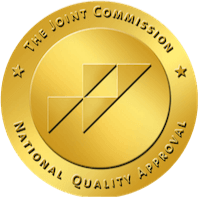
What Does the Role of a Respiratory Therapist Entail?
A respiratory therapist plays a vital role in the healthcare industry. These therapists work under the supervision of doctors or other staff to help patients of all ages whose lungs are injured or not adequately developed. For example, these professionals may work with a premature infant whose lungs are not completely developed yet. Here are some of the things their role entails.
Tending to Various Patients
According to Teletherapist Network, a therapist who works 40 hours a week would have about 30 clients. This can be similar for respiratory professionals. However, the caseload will vary based on location. Most therapists work with patients of all ages, including infants and the elderly.
Giving Medications
Medications can make a world of difference in a patient’s lungs. Newborns may be given steroids to help their lungs develop faster so they can breathe on their own sooner. It will be your job to administer medication and ensure patients receive the proper dose. However, a doctor will usually be the one to prescribe the medication. You’ll also have to report any changes or side effects to the attending doctor.
Communicating
Effective communication is necessary because you’ll be part of a valuable team. Communication may involve making notes in a patient’s chart to ensure everyone knows about changes. You may have to do this on a tablet or other device. Sometimes, you have to communicate directly with other staff or the doctor.
Assessing
Respiratory therapists play a crucial role in assessing patients due to their expertise. This can involve running laboratory or diagnostic tests to determine how well a patient’s lungs function. It can also include looking at several other organs to determine if something else impacts lung function. This is the first step in treating patients.
Recommending Treatment Plans
You’ll also be a valuable part of treatment planning. You can give recommendations or advice on effective treatments based on previous experience and scientific evidence. Although the ultimate decision is usually up to the doctor, your input is necessary to develop an effective treatment plan.
Monitoring
As a respiratory therapist, you’ll be responsible for monitoring various treatments. For example, you may have to monitor patients who are on ventilators. This also requires taking notes and communicating the patient’s condition to other staff. You’ll also have to monitor medications and other essential treatment plan components.
These are some of the roles of a respiratory therapist. Are you looking for a job in the industry? We specialize in nurse recruitment, including travel nurses and various other specialties. Right now, we are recruiting multiple types of nurses. Contact us at Concentric Healthcare Staffing to learn more.
Posted 2/20/24



